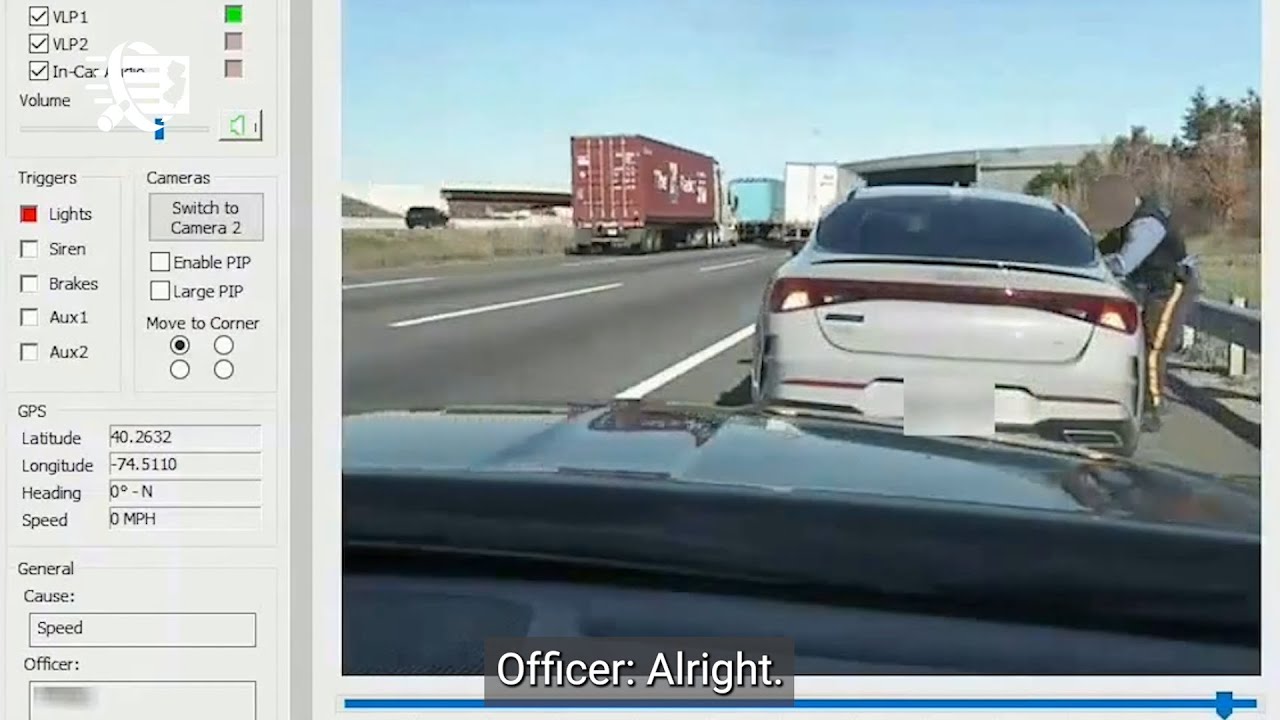Driving with impunity: Courtesy cards and connections a free pass with troopers, N.J. Comptroller investigation finds
It’s not always how you drive that determines whether you get ticketed by New Jersey State Police troopers. Sometimes, it’s who you know.
The Office of the State Comptroller has confirmed what many New Jersey residents have long suspected. Drivers without connections often get ticketed, while those with connections often don’t. This system allows some dangerous drivers to avoid penalties and makes New Jersey roads less safe.
Some drivers flash so-called courtesy cards when pulled over by state troopers. Police frequently give the cards to friends, relatives, donors, and associate members of police benevolent associations.
An investigation by the Office of the State Comptroller found New Jersey State Police troopers routinely give preferential treatment to drivers who present courtesy cards or claim personal connections to law enforcement—even in cases involving dangerous offenses like drunk driving.
“Our investigation shows that some people are being given a free pass to violate serious traffic safety laws,” Acting State Comptroller Kevin Walsh said. “Law enforcement decisions should never depend on who you know, your family connections, or donations to police unions. Nepotism and favoritism undermine our laws and make our roads more dangerous.”
Bodycam footage findings
The Office of the State Comptroller Police Accountability Project reviewed body camera footage from 501 “no-enforcement” stops where troopers issued no tickets or made no arrests. Of these, 27%, or 139 stops, involved drivers presenting a courtesy card, claiming to know someone in law enforcement, or flashing a law enforcement badge before being let go, the report said.
In some instances, troopers released drivers with statements like “You’re good.” The report found courtesy cards function as “accepted currency” among troopers. In all but one of the 139 cases, troopers then returned the courtesy card to the motorist, enabling its reuse.
Investigators reviewed more than 50 hours of footage from stops conducted over 10 days in December 2022. Troopers often decided not to enforce motor vehicle laws after receiving a courtesy card or learning of the driver’s law enforcement ties.
Examples of no-enforcement stops include a driver going over 90 mph who admitted to drinking alcohol but was released without a sobriety test after presenting two courtesy cards. In another instance, a driver clocked at 103 mph was let go after noting her father was a local police lieutenant. In such cases, the most severe action taken by troopers was notifying the law enforcement officer named on the courtesy card or cited as a personal connection.
Dangerous offenses
Of the 501 no-enforcement stops reviewed, nearly half involved speeding, with many drivers exceeding the speed limit by more than 20 mph. In three cases, drivers stopped for reckless or careless driving also admitted to drinking alcohol but were not subjected to sobriety tests.
Speeding and drunk driving are leading causes of traffic fatalities. According to the New Jersey State Police Fatal Accident Investigation Unit, there were 646 fatal crashes in the state in 2022, resulting in 689 deaths—an average of 1.89 fatalities per day. This marked one of the highest traffic fatality rates in the past 15 years.
Courtesy cards and racial disparities
The investigation revealed widespread use of courtesy cards. In 17% of the no-enforcement stops, or 87 cases, drivers presented courtesy cards issued by municipal, county, state, or out-of-state law enforcement agencies. Cards from all sources appeared equally effective in avoiding enforcement.
Asserting a connection to law enforcement also carried significant weight. In 10% of no-enforcement stops, or 52 cases, drivers or passengers claimed a law enforcement connection without presenting a card, and troopers let them go. In 29 of those cases, drivers or passengers identified themselves as current, retired, or in-training law enforcement officers. Other motorists claimed friends, relatives, or neighbors in law enforcement.
In one instance, a driver who was stopped for speeding at 97 mph engaged in an extended conversation with the trooper about mutual acquaintances before being released with a “stay safe.” In another case, a driver with an active arrest warrant was let go after an off-duty trooper intervened on his behalf.
The report also noted racial disparities. Of the 87 courtesy cards observed, 69 were presented by white drivers. Troopers were less likely to request all three driving credentials—license, registration, and proof of insurance—from white and Asian drivers compared to Black and Hispanic drivers. Troopers conducted computerized lookups for 65% of Hispanic drivers but only 34% of white drivers.
Recommendations
The Office of the State Comptroller made 11 recommendations, including that the New Jersey State Police regularly review no-enforcement stops to analyze racial and ethnic trends in traffic stops and assess the need for additional training.
The Comptroller also recommended that the New Jersey Attorney General consider issuing a directive explicitly prohibiting preferential treatment based on courtesy cards or personal connections.
Video footage below of New Jersey State Police stops that resulted in a driver being let go after showing a courtesy card or noting a personal connection to law enforcement
Krystal Knapp is the founder of The Jersey Vindicator and the hyperlocal news website Planet Princeton. Previously she was a reporter at The Trenton Times for a decade. Prior to becoming a journalist she worked for Centurion, a Princeton-based nonprofit that works to free the innocent from prison. A graduate of Smith College, she earned her master's of divinity degree from Princeton Theological Seminary and her master's certificate in entrepreneurial journalism from The Craig Newmark School of Journalism at CUNY.



